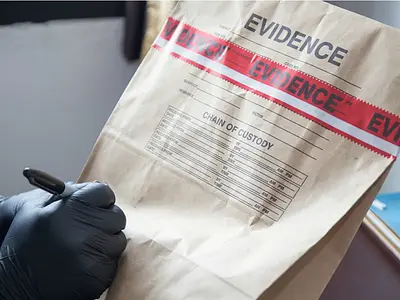Identifying a path forward for improving police-community relationships and for expanding victim-centered approaches
Victimization has a deep and adverse impact on communities. Studies have shown that crime victimization is associated with impairing an individual’s quality of life and has created negative relationships between law enforcement agencies and many communities they serve. This understanding provides a foundation for addressing community engagement through the lens of improving victim experiences within each step of the criminal justice process and ensuring that all victims within a community receive the assistance they need. The RTI Center for Policing Research and Investigative Science believes that improved police-community relations can be achieved through the improved use of data, evaluation of existing police practices, and multidisciplinary partnerships to identify evidence-based, sustainable practices.
Project Highlight
Sexual Assault Kit Initiative (SAKI) Training and Technical Assistance (TTA) Program
The SAKI TTA Program supports coordinated teams of police officers, prosecutors, crime laboratory professionals, sexual assault nurse examiners (SANEs), forensic medical personnel, and victim services agency members. SAKI TTA provides victim-centered and sustainable practices; these practices help with collecting and processing forensic evidence, investigating and prosecuting sexual assault cases, and supporting sexual assault survivors.
Project Highlight
Office for Victims of Crimes (OVC) Property Crimes
This OVC project focused on enhancing law enforcement’s response to victims of property crimes aims to develop victim-support services programs focused on residential burglary.
Project Highlight
Lafayette Parish Project
RTI, in partnership with criminal justice and mental health agencies in Lafayette Parish, Louisiana, is conducting an outcome evaluation of a pre-arrest diversion program. RTI project staff are working with local partners to design and conduct the outcome evaluation of the program, which utilizes a field data collection process integrated with the county’s CAD system.
Project Highlight
Prevalence of Sex Trafficking Pilot Study in Sacramento
RTI is working with the Community Against Sexual Harm to estimate the prevalence of sex trafficking in Sacramento County, California. This project, funded by the California Department of Justice, relies on a dedicated partnership, including local law enforcement, the District Attorney’s Office, a specialty human trafficking medical clinic, direct service providers, a survivor-centered advisory group, and a multidisciplinary research team. The prevalence of sex trafficking will be estimated through two independent data collection and analysis strategies. First, administrative data on sex trafficking victims provided by the partnering agencies will be analyzed using multiple systems estimation techniques. The secondary data will be supplemented with semi-structured interviews conducted with a representative sample of sex workers identified through respondent-driven sampling. Collectively, these complementary data collection and analysis strategies will yield a robust prevalence estimate. Data collected through this effort can be used to both leverage resources and inform a coordinated, cross-sector response to combat sex trafficking and serve trafficking victims.
Project Highlight
Comprehensive Opioid Abuse Program (COAP) Training and Technical Assistance (TTA)
RTI’s role in COAP is to provide direct support to state agencies and subrecipients, making communities safer by promoting evidence-based practices to respond to the opioid epidemic across all government levels. Through our substantive, methodological, and technical assistance expertise, we and our partners foster peer-to-peer learning and cross-site coordination to enable discussions of lessons learned, facilitate program improvements, and promote evidence-based program proliferation, providing tailored TTA for the unique needs of jurisdictions, which can also be applied nationally.
Project Highlight
Enhancing the Law Enforcement Response to Victims of Residential Burglary
RTI, in collaboration with the Minnesota Alliance on Crime and the Identity Theft Resource Center and with funding from the Office for Victims of Crime, is developing an innovative technology to support victims of burglary. This technology builds on the success of chatbots, or conversational agents, to enhance customer service across a wide range of sectors, from commercial/retail, to banking, healthcare, and government. RTI’s Enhanced Virtual Victim Assistant (EVVA) chatbot will improve the ability of law enforcement agencies to respond to burglary victims’ needs and provide referrals to community-based support and services without impacting already constrained law enforcement resources. EVVA will answer frequently asked questions common to burglary victims and provide referrals for national and local organizations, connecting victims to needed resources and support. Additionally, EVVA will advise burglary victims on what to expect with the law enforcement investigation, what steps to take to secure their residence and personal identifying information, and how to contact the officer or investigator assigned to their case.













